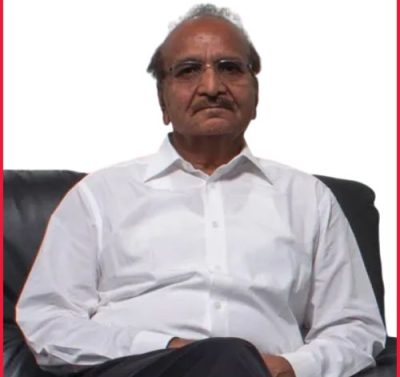The Indian Government is doing everything in their power to provide the best grants for small businesses. This initiative by the government has been driving India towards a steady growth of economic balance and advancements in technology and infrastructure. Due to these small business government grants in India, the community is getting a lot of support that they deserve and making them financially stable and sustainable. Business Outreach Magazine will take you through the information that these grants provide and how they are helping the business owners in their own way.
List of Government Grants In India
1. Aatmanirbhar Bharat App Innovation Challenge
Prime Minister Narendra Modi made a historic announcement on July 4th, in the year 2020. The startups that are getting established in India got themselves geared up with a meaningful and beneficial technology which can help them innovate on new ideas and work on its operation and management. Narendra Modi announced Aatmanirbhar Bharat App Innovation Challenge and invited the tech experts and developers of India to build India on the pillars of impeccable products that will lead the country to greater heights. He also urged the tech sector to come up with ideas and products that will not only help the country but will also help the world grow together along with the country. The innovation can include building a mobile app to a plethora of assets that are digitally useful for the country. This project was announced keeping in mind the plan for the Digital India Mission. The project partnered with the Ministry of Electronics and Information Technology and the Atala Innovation Mission. This joint venture was backed by Niti Aayog. During this period, the Indian government restricted operations of Chinese mobile applications like TikTok, Xender and several others. India is on a mission to be technological self-reliant and aims to uplift the mobile app platform of the country. The challenge was divided into several parts and each part had a winner.
- Platform for increasing productivity in office and work from home- Zoho Cliq and Workplace
- A social media platform for networking- Chingari
- A new platform- Logically
- An online space for gaming- HitWicket Superstars
- Edtech platform– Hello English: Learn English
- A fitness and wellness space- StepSetGo
- An online entertainment platform- CaptionPlus
- An Agritech and Fintech online platform- Zoho
The winners of the app challenge received a prize amount of Rs. 20 lakh. The first runners-up received a prize money of Rs. 15 lakh and the third runner-up received an amount of Rs. 10 lakh.
2. SAMRIDH Scheme
SAMRIDH is Startup Accelerators of Meity for Product Innovation, Development and Growth. This scheme was announced by the Minister of Electronics Information and Technology (MeitY), Sri Ashwini Vaishnaw. After a couple of days of its launch, the scheme started to support startups at the root stages of its business. This scheme will initiate in providing proper fundings for the startups and will gather skill sets for the business which will come useful for its success. The SAMRIDH scheme will also forward their hand of support to about 300 startups by availing them with proper customer connection, bringing in investors and will also carve pathways for expanding around the globe in the next few years to come.
3. Startup India SEED Fund
The Startup India SEED Fund is a project by the Indian Government with the investment of about Rs. 1,000 crores. Narendra Modi announced on 16th January, in the year 2021 that this initiative will support startups and encourage new innovative ideas for entrepreneurs. Prime Minister Modi ensured that the startups in India will not face any shortage of capital and will allow in a steady and fast growth of the new businesses of India. The Startup India SEED Fund was revised in the year 2022 with about Rs. 285 crore. In the financial year 2021-2022, the fund was revised ast about Rs. 100 crore.
4. Startup India Initiative
The Startup India Initiative was announced by Prime Minister Narendra Modi in 2016 on the 16th of January. This project was launched to boost the rate of employability by providing enough support and resources to the entrepreneurs of the country. There are several benefits in taxes provided to the startups of India and the government has acknowledged about 50,000 new businesses under this project in a span of about 5 years, which was recorded in the year 2021 on the 3rd of June. The Department of Industrial Policy and Promotion is supervising the project and has an objective to place this project for a long period of time. The age limit for the startups is being increased to about seven years from the previously made two years. The government has made the age limit for biotechnology firms to about ten years from getting incorporated. This initiative by the Indian government is very promising and offers a lot of perks and benefits for the startups and businesses of India.
5. Startup Leadership Program
The Startup Leadership Program is another project by the Indian government which appreciates and encourages the innovators and dreamers of India with their contribution to the industries and economic development of India. This project was launched in 2016 in India, where it offers top-notch training of about 6 months and provides effective networking. The Startup Leadership Program was first introduced in the year 2006, in the city of Boston. Currently, the project has expanded to over 14 countries and more than 28 cities. It has supported about 2000 new businesses and helped more than 3000 entrepreneurs. A total fund of about $ 2.4 billion has been gathered till date under this project.
6. ASPIRE
The rural areas of India constitute a large portion of the country. The government is doing everything in their power to help the rural areas of the country grow and develop. The socio-economic improvements of the lives of the rural population has been a constant objection for the Indian government and this is why they developed the ASPIRE scheme. ASPIRE stands for A Scheme for Promotion of Innovation, Rural Industries and Entrepreneurship. This project is led by the Ministry of Micro, Small and Medium Enterprises (MSME). In 2015, the Indian government introduced the ASPIRE project, where it provided proper knowledge and tools for entrepreneurs to start their venture and be successful employers. In India, about 56% of its population is of rural origin and this scheme will help those people in growing their ideas and businesses. The main reason for introducing this scheme was to bring in employment opportunities, significantly reduce the percentage of poverty and to provide confidence and support to the rural public to bring up their innovation for the country. This will help a lot in growing the agricultural industry in India. About Rs. 63 crore was invested in the project between 2014 to 2016.
7. Pradhan Mantri Mudra Yojana (PMMY)
The rural areas are in a deficit of proper funding prospects to grow small businesses in the country. MUDRA or Micro Units Development Refinance Agency are banks that promote better credit facilities for small businesses that originate in the rural regions. About Rs. 10,000 crore was invested by the Indian government in the year 2015, which will facilitate the growth of startups in the country. MUDRA banks offered about Rs. 10 lakhs of loans to startups and small enterprises. These groups are not from corporate sectors and not from farm micro enterprises. The Pradhan Mantri Mudra Yojana (PMMY) supervises MUDRA and was introduced in the year 2015, on 8th of April. There are three categories into Tarun, Kishore and also Shishu. There are no requirements of providing any collateral for security for these credits and it is backed by the financial standing of the bank.
8. Chunauti
Chunauti is an initiative that stands for Challenge Hunt Under NGIS for Advanced Uninhibited Technology Intervention. This scheme was introduced during the challenging times of the year 2020, when the government asked the tech aficionados and experts to bring forward ideas and softwares to combat the time and help in growing the economy. This project is aimed towards the development of startups under NGIS, which is the Next Generation Incubation Scheme.
Eligibility for Applying:
- Inviting Indian startups with their proposals for offering products for software development.
- The small businesses or startups who are the members of DPIIT program for startups, are welcome to join the challenge.
- Ideas and innovation from researchers, entrepreneurs, educators, LLPs and several others can join the challenge. If they are being selected, they have to register themselves as a private limited enterprise within a period of around three months.
There are five niches for this challenge:
- Solutions for the public in the sectors of Edtech, Fintech and Agriculture based technologies.
- Areas of Logistics and Supply Chain, including fields like Transportation.
- Technologies for remote supervision and improved infrastructure.
- Industries like Medical Healthcare, Diagnostic Departments and Psychological Well Being.
- Tools and Resources in Linguistics, Jobs and Upskilling Platforms.
The Indian government provided a plan to invest about Rs. 95 crore for this project for about three years and also registered around 300 startups in several domains. There are several funding tools provided for the selected startups. Mentoring, support for incubation, cloud resources from third-party providers and also a seed investment of about Rs. 25 lakh. The interns will be paid about Rs. 10000 monthly for about six months to support themselves and motivate themselves in this initiative. The submission of the application commenced from 10th of August and ended on 7th of September in the year 2020. The applications were assessed on 21st September in 2020 and the results were declared on 28th September, 2020.
9. Qualcomm Semiconductor Mentorship Program (QSMP)
The mobile chipset manufacturing giant Qualcomm collaborated with the Center for Development of Advanced Computing (C-DAC) to organize the Qualcomm Semiconductor Mentorship Program (QSMP) in the year 2022. In this project, Qualcomm will join hands with startups manufacturing semiconductors in India. C-DAC is the Research and Development department of the Ministry of Electronics and Information Technology (MeitY). Qualcomm is aiming towards providing mentorship, training programs in technical aspects, and expanded opportunities in the industry to the small businesses and startups of India that are from the domain of the semiconductor space. Qualcomm will select 10 startups from the country in this program, where the startups will team up with leaders from Qualcomm in training and product development.
10. India Water Pitch-Pilot-Scale Startup Challenge
The Indian government started this initiative on the 12th of March in 2022 and was officially announced by Hardeep Singh Puri, who is the Minister of Petroleum and Natural Gas and the Housing and Urban Affairs Minister. The selected startups in the project will receive about Rs. 20 lakhs from the Housing and Urban Affairs Government along with relevant tools and government support. The initiative wants to uplift about 100 startups in the water industry. This project was announced at a conference in New Delhi under the proceedings of the Atal Mission which is planned with Rejuvenation and Urban Transformation. Minister Puri is optimistic with the advent of this project as this will provide the support and growth for the startups in the water sector and bring them sustenance and development.
11. Ministry of Skill Development and Entrepreneurship
The responsibilities for uplifting entrepreneurship in India were given to different agencies. But in the year 2014, Prime Minister Narendra Modi decided to build a Ministry for handling the startup industry in India with the promotion of relevant skills. The government will leave no means of effort to support the entrepreneurs of the country. The Ministry aims to find its way to about 500 million people by the year 2022 and help them in learning modern and relevant skills through gap funding and other means of support.
12. Atal Innovation Mission
The Atal Innovation Mission was announced in the financial budget of 2015. This project has its name and respect for Atal Bihari Vajpayee, the ex-Prime Minister of India. The online platform was developed to offer promotional opportunities for academicians and educators which will bring forward national and international cultural exchanges, research and innovation. A funding of about Rs. 150 crore was provided to this project in the year 2015.
13. eBiz Portal
eBiz Portal was the first online platform for the government-to-business network that was established in 2013. The development of this portal was aimed to empower a seamless business ecosystem in the country. This platform was created by infosys, by a joint collaboration with the government of India. This portal was a medium of network for business groups and investors in the country. eBiz is present in states like Andhra Pradesh, Delhi, Maharashtra and several other regions. With time, the government aims to add more services to the platform. Although it shut down in 2018 due to low traffic, the Indian government is looking forward to reinstating the services and tools of the portal.
14. Dairy Processing and Infrastructure Development Fund (DIDF)
The National Bank for Agriculture and Rural Development is a major bank focused towards development in India. Under the supervision of NABARD, the government of India had developed the Dairy Processing and Infrastructure Development Fund in the financial year of 2017-2018, for the consistent growth of farmers. About Rs. 8,000 crore were invested in the project within a span of three years from 2017 to 2020. Groups like Milk Unions, State run dairy bodies, companies producing milk and similar companies can get loans from NABARD under this scheme. The component of the loan included 80% at the maximum rate and 20% from the borrower’s end. Loan seekers can get a loan at an interest rate of about 6.5% annually and have to repay the money within 10 years. The guarantee of the loan will be ensured by the state government and will help in the situation if the borrower fails to repay the loan. The Ministry of Agriculture has been provided a capital of about Rs. 1.31 lakh crore in 2021, which will increase to Rs. 1.32 lakh crore in 2022. NABARD will offer a co-investment strategy that will provide blended funding. This will support agri-tech startups in growing in the industry of farming. Nirmala Sitharaman, the Indian Finance Minister, further added the usage of drones in agriculture which will provide information on crop assessment, land evaluation and spraying fertilizers in the field.
15. Support for International Patent Protection in Electronics and Information Technology
The SIP-EIT is another example of best grants for small business under the Department of Electronics and Information Technology (DeiTY). This initiative helps startups file international patents. This scheme provided capital support in international filing in the sector of Information Technology and Electronics. The limit for reimbursement is at Rs. 15 lakhs for every product or about 50% of the total sum spent in filing the patent. The applicant has the privilege to apply for this scheme at any point while filing the international patent.
16. Multiplier Grants Scheme
This scheme is supervised by the Department of Electronics and Information Technology (DeiTY). Under this project, academic institutions and industry collaborate with each other and build innovative products and ideas by enforcing intense research and development in the process. If the product is accepted by the industry, the idea can be used commercially by acknowledging the efforts of the institution. The Indian government will provide twice the amount of financial backing than the industry towards the product. MGS helps in promoting products that emits heritage and culture. About Rs. 2 crore will be allotted to every project for a span of two years and Rs. 4 crore will be offered by the industry for a period of 4 years.
17. Credit Guarantee Fund Trust for Micro and Small Enterprise
The Credit Guarantee Fund Trust for Micro and Small Enterprise has existed since 2000, providing loans to small and micro businesses without any collateral. The loans bear a higher interest rate due to security purposes. With the help of Small Industries Development Bank of India (SIDBI), the loans are offered at a maximum amount of Rs. 100 lakh for jump-starting pre-existing enterprises and encouraging new startups. This type of loan is generally provided to manufacturing sectors.
18. Software Technology Park (STP)
The Software Technology Park (STP) is a small business government grant focused towards export and development of softwares for the digital world. Professional services are exported with the help of services of communication and other forms of media. The Software Technology Park only focuses on computer software. This initiative drives towards fully Export Oriented Units (EOU), Export Zones for Processing and the idea of science parks operating globally. About 50% in terms of value will be offered in Domestic Tariff Area sales figures.
19. The Venture Capital Assistance Scheme (VCA)
The Small Farmers’ Agri-Business Consortium initiated the Venture Capital Assistance Scheme for farmers who want to grow in their agricultural business. This project is accepted by the banks and credit institutions that are supervised by the Reserve Bank of India. Term loans are provided to entrepreneur farmers for getting eligible for the implementation of the projects. About Rs. 30 lakh of loan will be provided to the borrower with 26% of the equity of the promoters.
20. Solar Power Projects Loan
The world is going towards a green economy and the government of India aims to build about 40,000 MW of Solar Power Grid in the rooftops in the following five years. These solar panels will be set on the rooftops of institutions, commercial offices, and residential houses with capacity from 1 kWp to 500 kWp. These plans will provide sustainable energy at Rs. 7 every kWp and with no subsidy. About 15% subsidy is being provided by the Indian government to companies and individuals who use these panels.
21. Single Point Registration Scheme (SPRS)
The Single Point Registration Scheme was introduced in the year 2003 by the National Small Industries Corporation (NSIC). The NSIC lists all the Micro and Small Enterprises of the country through the Single Point Registration Scheme which allows them to purchase government products. Micro, Small and Medium companies are categorized depending on the investment limit. The enterprises that are eligible are provided with an Udyog Aadhar certificate for registration. All central departments and Public Sector Units have set about 20% of the yearly purchases from these small enterprises. MSMEs has an exclusive product portfolio of about 350 items.
22. Modified Special Incentive Package Scheme (M-SIPS)
The government of India has enabled incentive packages in producing products from the Electronics System Design and Manufacturing (ESDM) industry. This is the Modified Special Incentive Package Scheme. A 20% subsidy will be offered on capital investments in special economic zones and about 25% subsidy in non-special economic zones for companies. Under M-SIPS, there is also reimbursement in excise duties for equipment in capital form for units in non-special economic zones. There are also reimbursements in several taxes for high-end technology and investment units.
23. Stand Up India Scheme for Financing SC/ST or Woman Entrepreneurs
The Stand Up India project provides support to the SC/ST and woman entrepreneurs of India. Under this scheme, a loan amount from Rs. 10 lakh to Rs. 1 crore can be availed by the SC/ST or Woman borrower to establish a greenfield company. This company can be from the sector of manufacturing, services or the industry of trading. In the case of a non-individual company, it is crucial that the SC/ST or the woman entrepreneur has a 51% stake in the enterprise.
24. ExtraMural Research or Core Research Grant
The Indian government launched the ExtraMural Research project with the help of SERB to provide assistance to educational institutions, laboratories of research and departments of research and development to initiate their proceedings and innovations in the field of science and also that of engineering. This grant was formed after the establishment of the Science and Engineering Research Council (SERC) and has been for four decades providing all the relevant support. The scheme offers funding opportunities for scientists in the field of Engineering and Science. The ExtraMural division was added recently to provide Core Research Grants for ongoing researchers.
25. IREDA-NCEF Refinance Scheme
The objective to reintroduce the power of biomass and other small projects that are hydro powered, that were shut down for any reason, has led the government in forming this scheme. The Indian government partnered with Indian Renewable Energy Development Agency Limited and also has the participation of the National Clean Energy Fund. With the help of these schemes, funds will be generated efficiently for the biomass plants and other hydro powered projects and will provide financing options with attractive interest rates.
26. Drone Shakti
The Indian government with the support of Nirmala Sitaraman, the Finance Minister of India, introduced the Drone Shakti initiative on the 1st of February in 2022. This project will encourage enterprises and startups in using drones for a broad spectrum of operations. Farmers will also be benefited by this project as they can use drones in the agri-tech business and be more optimistic about its growth. Farmers can spray nutrients to the soil, access land and several other services. The Indian government has provided full support for the advancement of this technology in the country. These drones are made in India and have already started their uses in the agricultural industry. The Ministry of Civil Aviation (MoCA) estimates about Rs. 3,000 crore investment in this strategy. In the financial year 2020-2021, he drone manufacturing industry was valued at about Rs. 60 crore which will increase to about Rs. 900 crore by 2023- 2024 financial year.
Also Read More –
Agnipath Scheme- A journey towards being Agniveer
Government for the 2nd quarter keeps interest rates unchanged on small savings accounts
On May 13, Prime Minister Narendra Modi will unveil the Madhya Pradesh government’s startup policy















